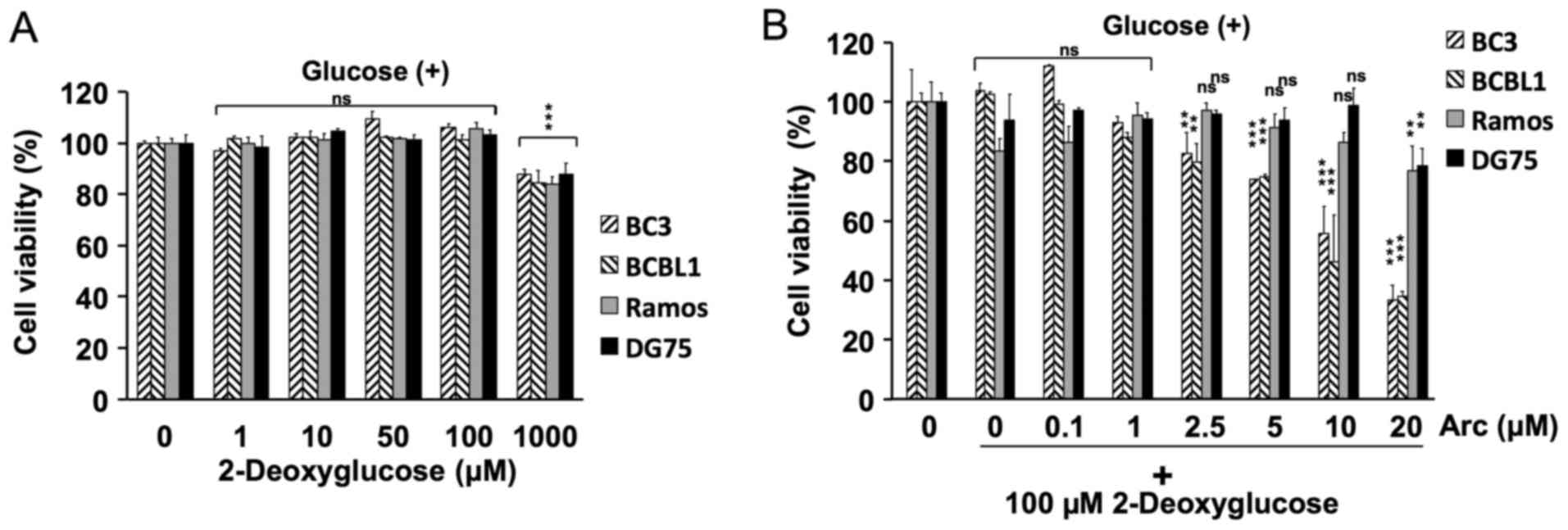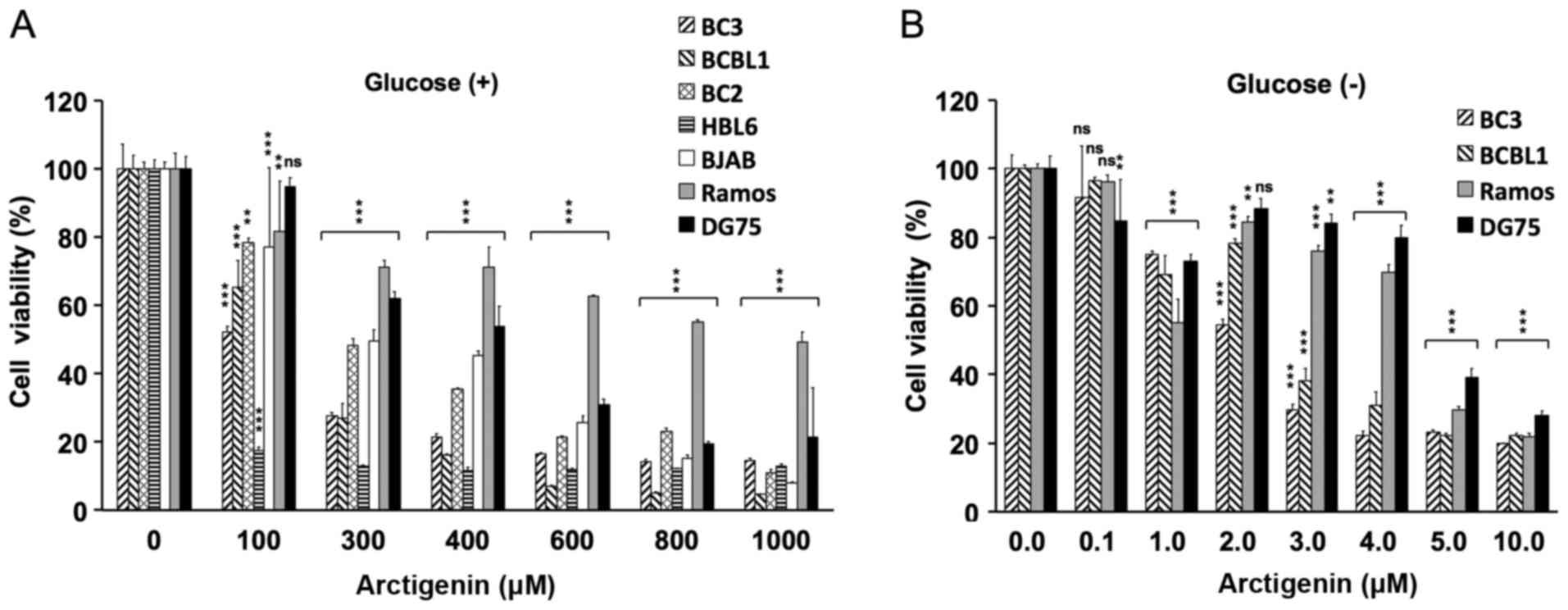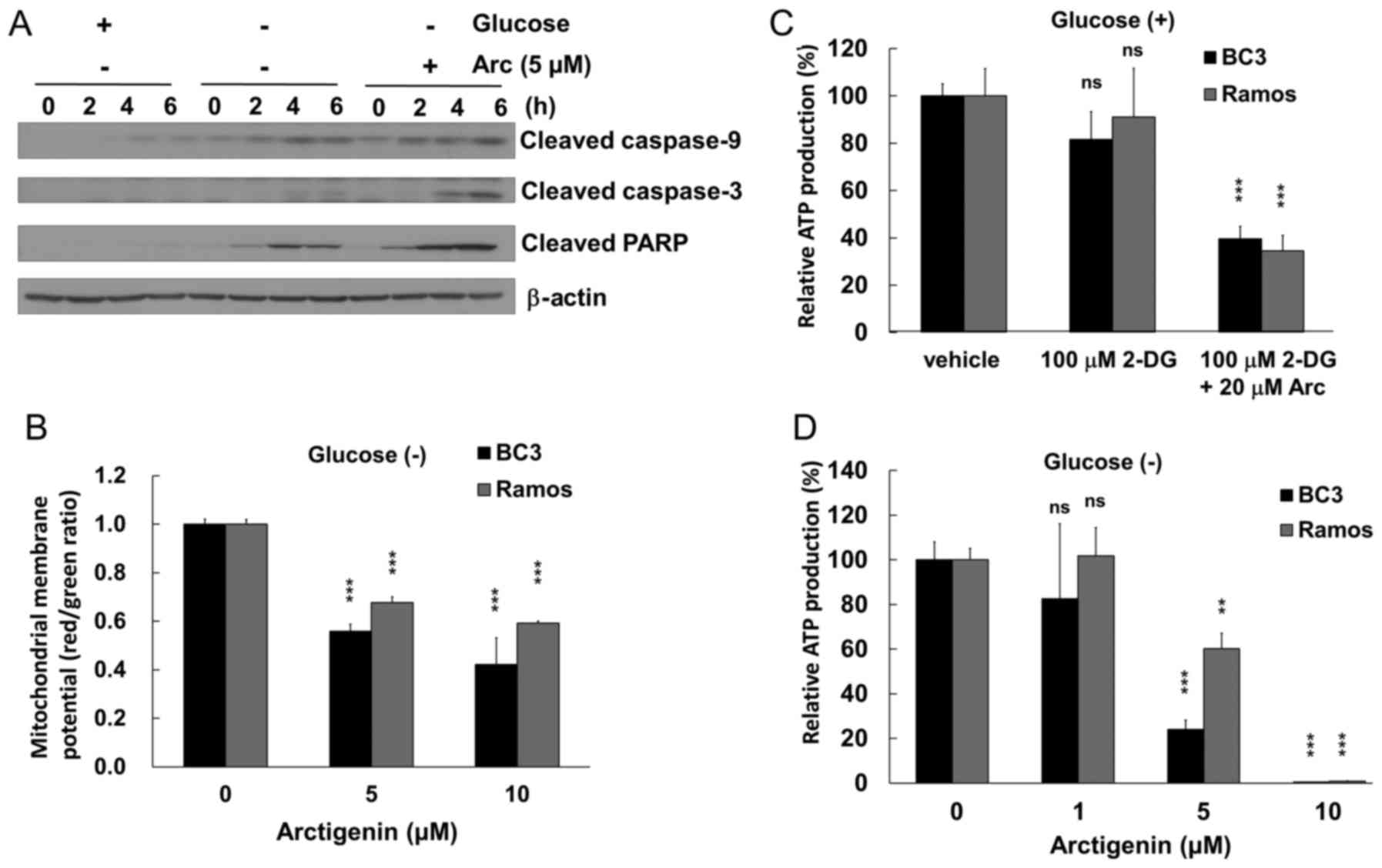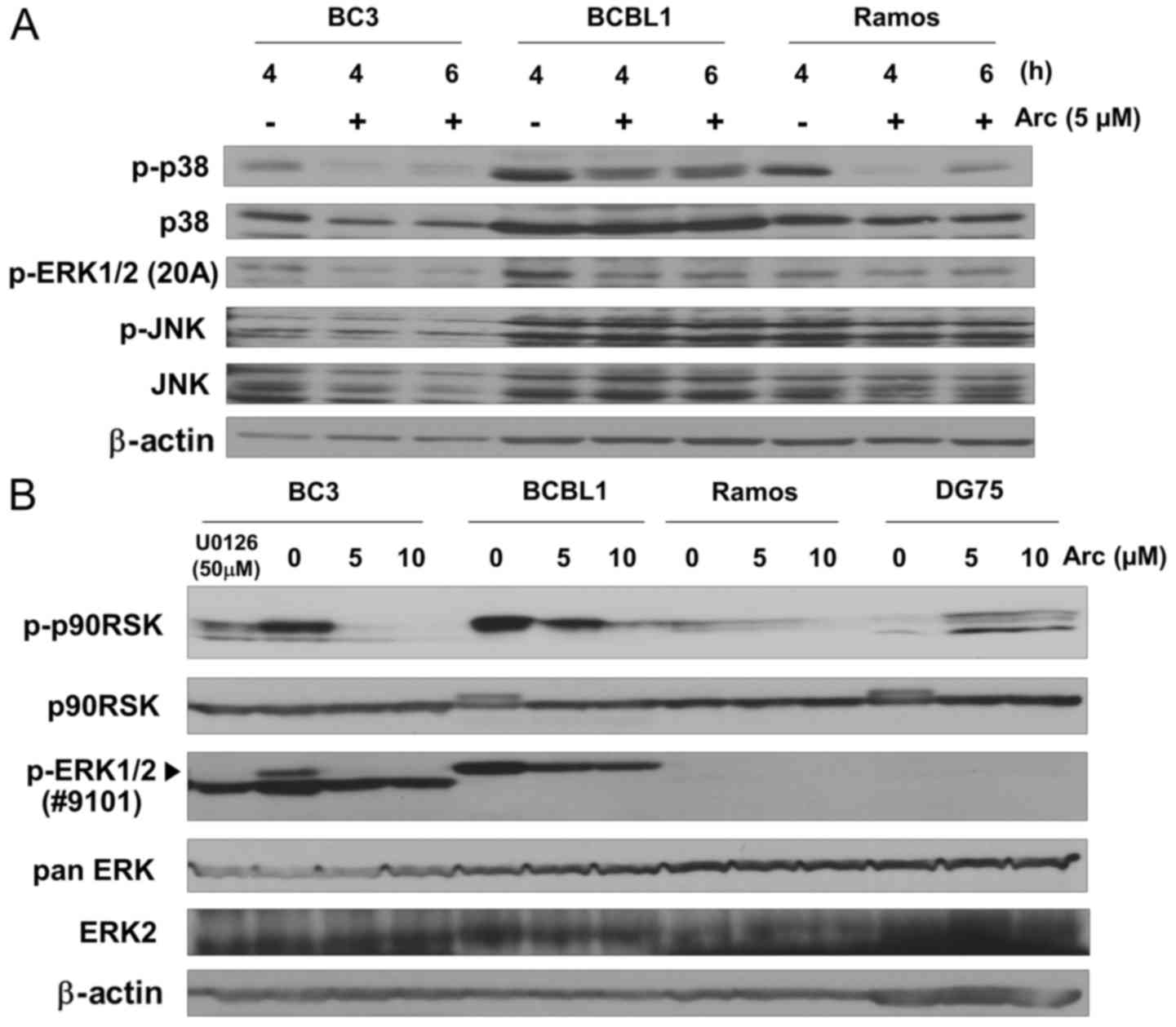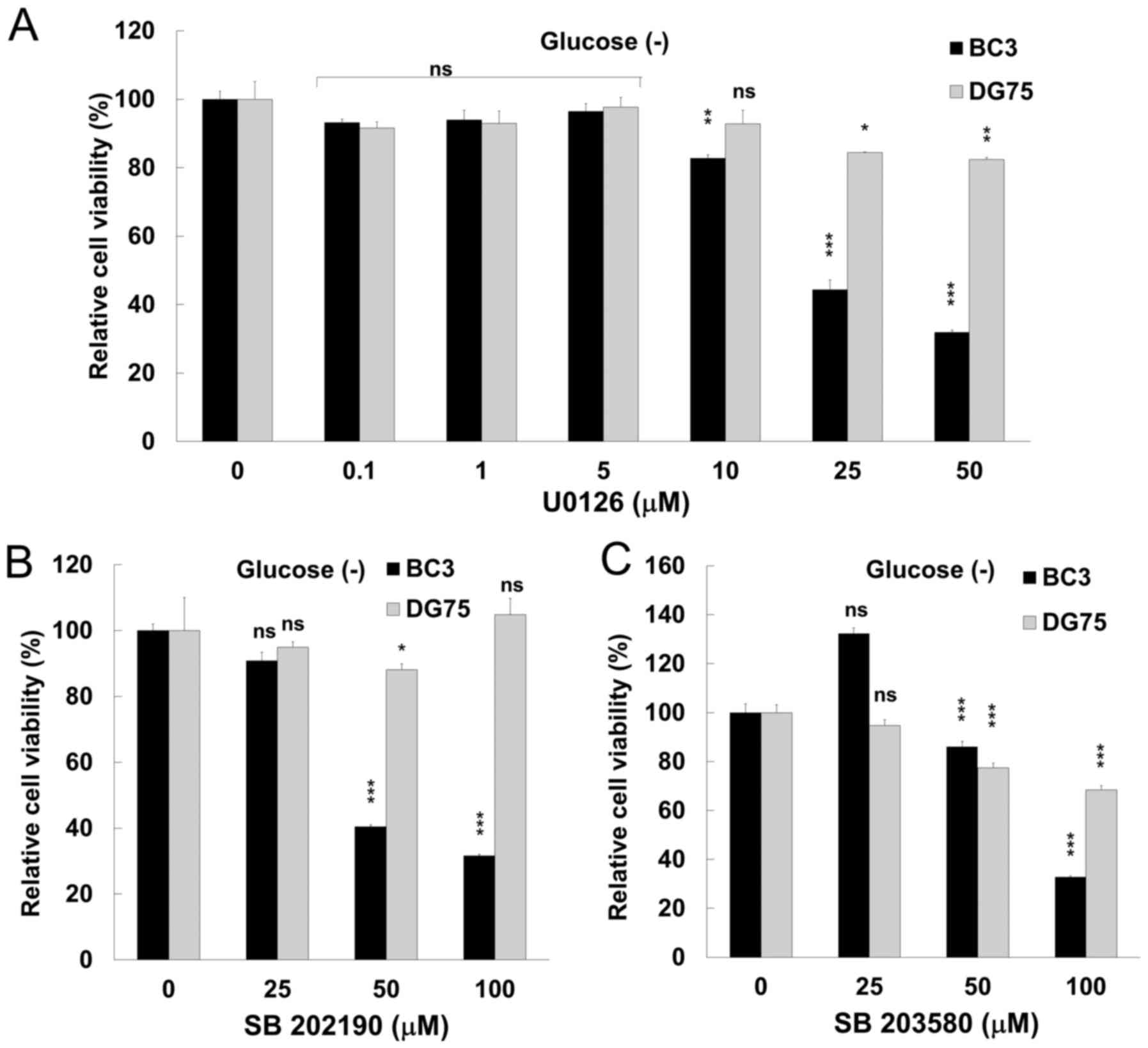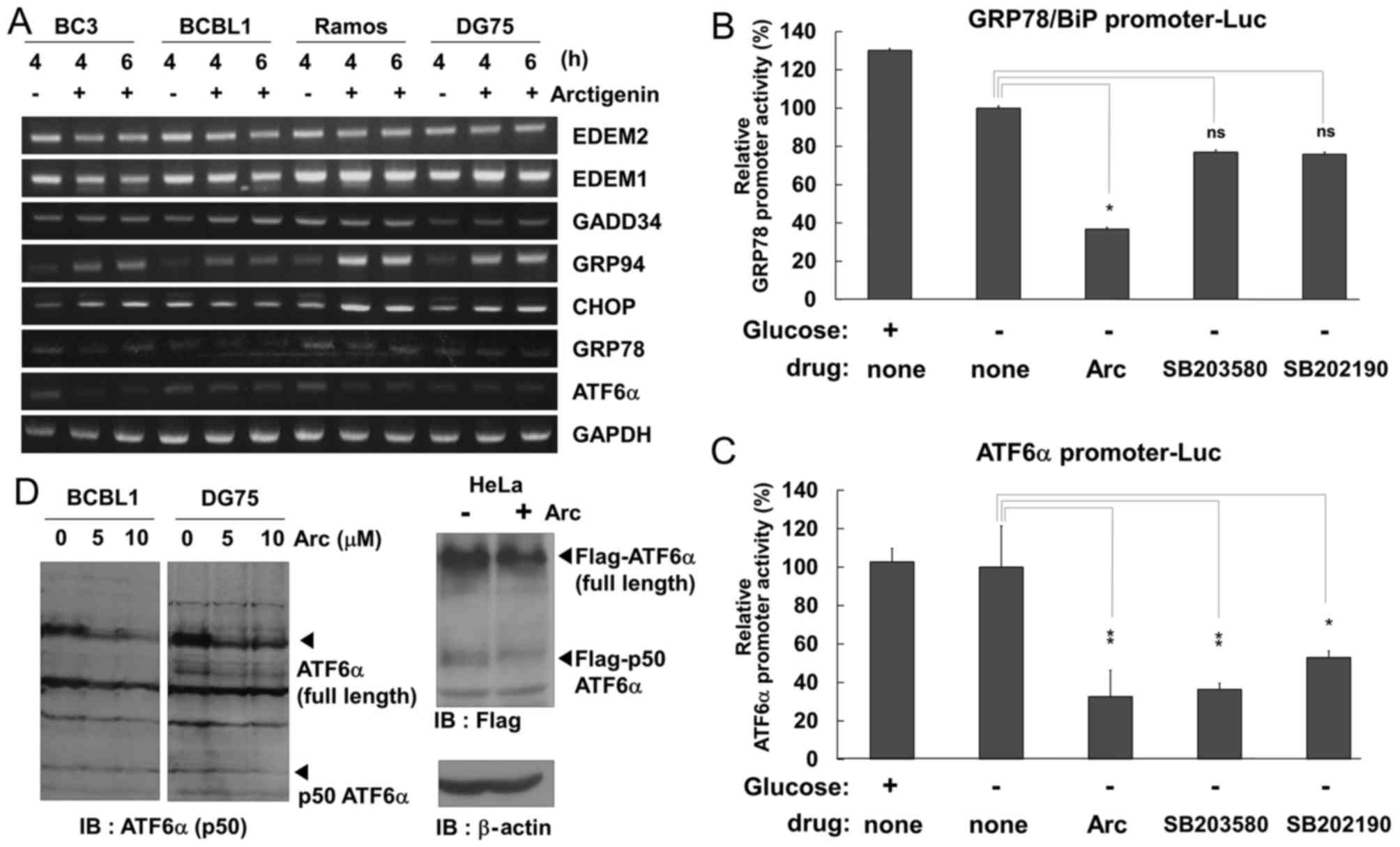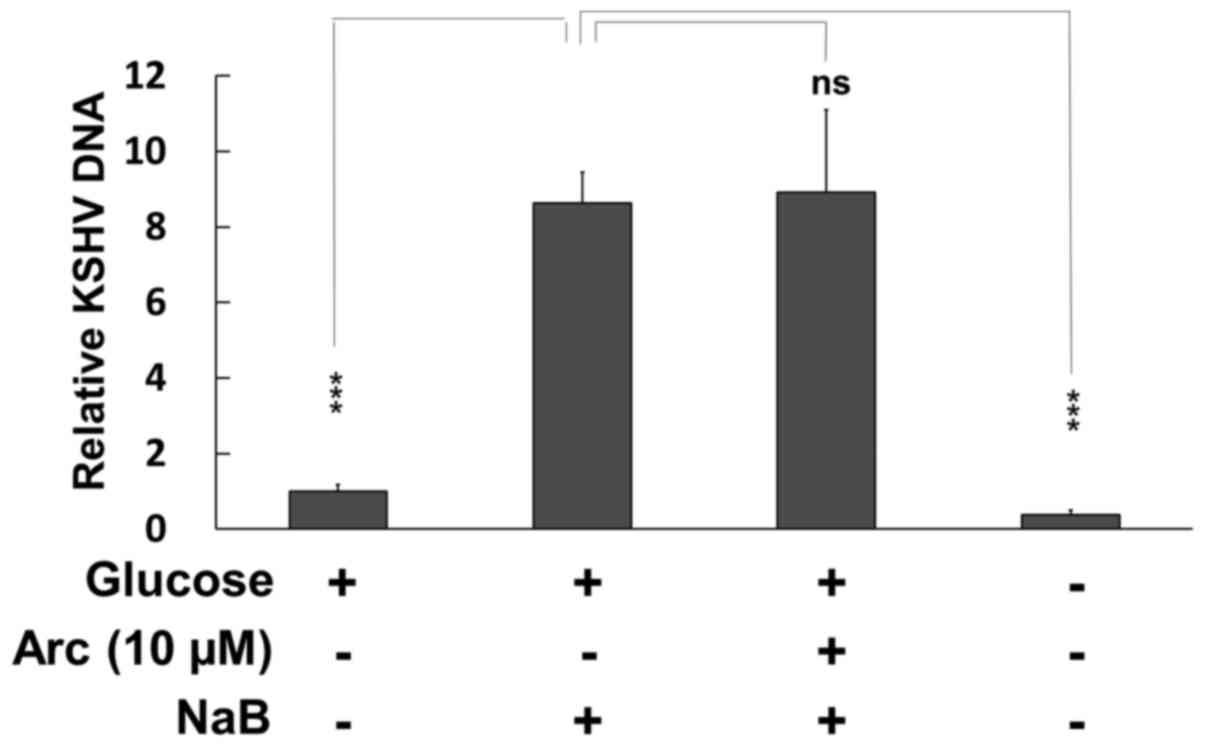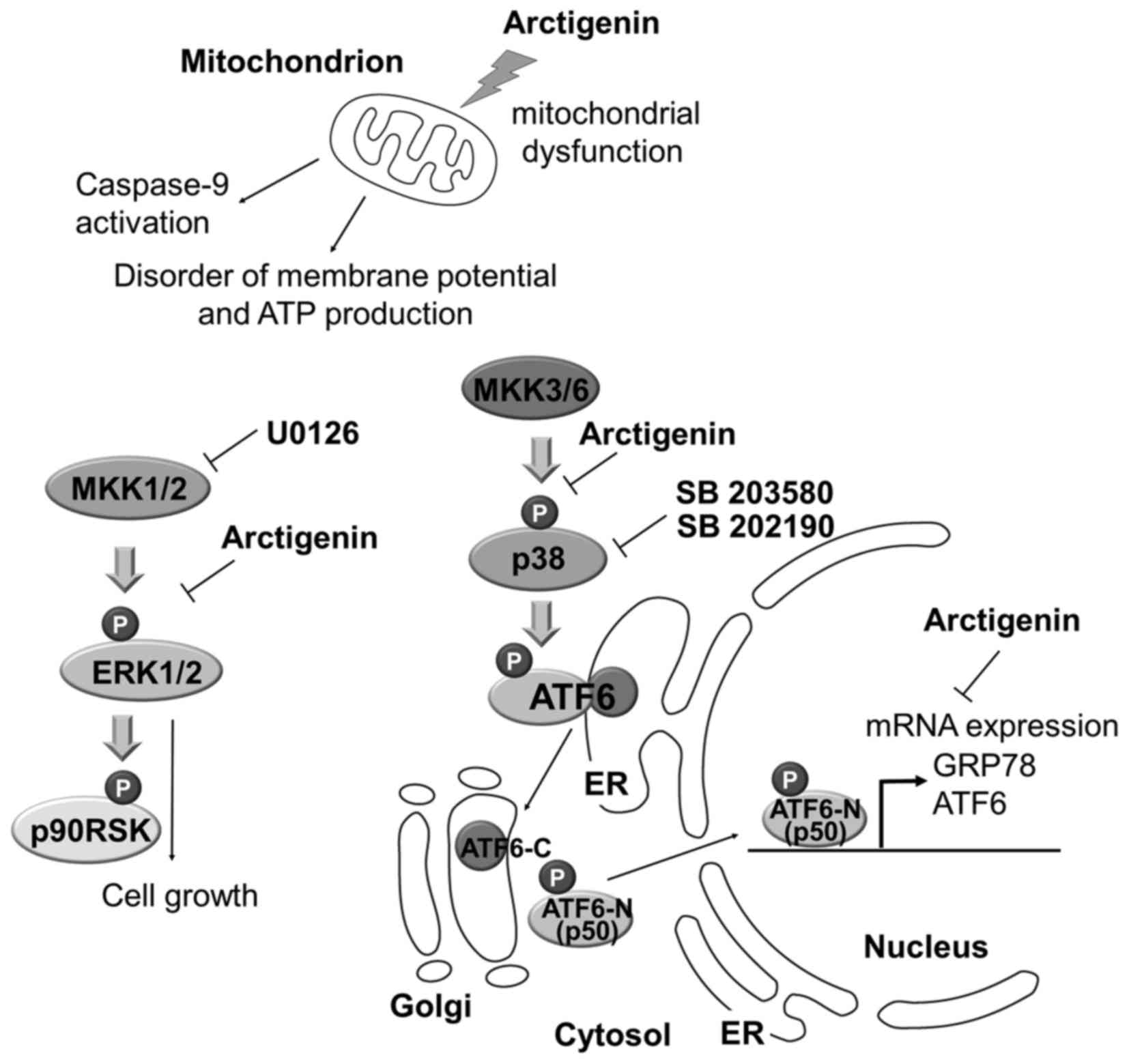|
1
|
Russo JJ, Bohenzky RA, Chien MC, Chen J,
Yan M, Maddalena D, Parry JP, Peruzzi D, Edelman IS, Chang Y, et
al: Nucleotide sequence of the Kaposi sarcoma-associated
herpesvirus (HHV8). Proc Natl Acad Sci USA. 93:14862–14867. 1996.
View Article : Google Scholar : PubMed/NCBI
|
|
2
|
Nador RG, Cesarman E, Chadburn A, Dawson
DB, Ansari MQ, Sald J and Knowles DM: Primary effusion lymphoma: A
distinct clinicopathologic entity associated with the Kaposi's
sarcoma-associated herpes virus. Blood. 88:645–656. 1996.PubMed/NCBI
|
|
3
|
Antar A, El Hajj H, Jabbour M, Khalifeh I,
El-Merhi F, Mahfouz R and Bazarbachi A: Primary effusion lymphoma
in an elderly patient effectively treated by lenalidomide: Case
report and review of literature. Blood Cancer J. 4:e1902014.
View Article : Google Scholar : PubMed/NCBI
|
|
4
|
Boulanger E, Gérard L, Gabarre J, Molina
JM, Rapp C, Abino JF, Cadranel J, Chevret S and Oksenhendler E:
Prognostic factors and outcome of human herpesvirus 8-associated
primary effusion lymphoma in patients with AIDS. J Clin Oncol.
23:4372–4380. 2005. View Article : Google Scholar : PubMed/NCBI
|
|
5
|
Carbone A and Gloghini A:
KSHV/HHV8-associated lymphomas. Br J Haematol. 140:13–24. 2008.
|
|
6
|
Okada S, Goto H and Yotsumoto M: Current
status of treatment for primary effusion lymphoma. Intractable Rare
Dis Res. 3:65–74. 2014. View Article : Google Scholar : PubMed/NCBI
|
|
7
|
Damania B and Cesarman E: Kaposi's
sarcoma-associated herpesvirus. Fields Virology. Knipe DM and
Howley PM: 2. 6th edition. Lippincott Williams & Wilkins;
Philadelphia: pp. 2080–2128. 2013
|
|
8
|
Schulz TF and Cesarman E: Kaposi
Sarcoma-associated Herpesvirus: Mechanisms of oncogenesis. Curr
Opin Virol. 14:116–128. 2015. View Article : Google Scholar : PubMed/NCBI
|
|
9
|
Fujimuro M, Wu FY, ApRhys C, Kajumbula H,
Young DB, Hayward GS and Hayward SD: A novel viral mechanism for
dysregulation of beta-catenin in Kaposi's sarcoma-associated
herpesvirus latency. Nat Med. 9:300–306. 2003. View Article : Google Scholar : PubMed/NCBI
|
|
10
|
Ashizawa A, Higashi C, Masuda K, Ohga R,
Taira T and Fujimuro M: The Ubiquitin system and Kaposi's
sarcoma-associated herpesvirus. Front Microbiol. 3:662012.
View Article : Google Scholar : PubMed/NCBI
|
|
11
|
Sun R, Lin SF, Gradoville L, Yuan Y, Zhu F
and Miller G: A viral gene that activates lytic cycle expression of
Kaposi's sarcoma-associated herpesvirus. Proc Natl Acad Sci USA.
95:10866–10871. 1998. View Article : Google Scholar : PubMed/NCBI
|
|
12
|
Shigemi Z, Furukawa Y, Hosokawa K, Minami
S, Matsuhiro J, Nakata S, Watanabe T, Kagawa H, Nakagawa K, Takeda
H, et al: Diallyl trisulfide induces apoptosis by suppressing NF-κB
signaling through destabilization of TRAF6 in primary effusion
lymphoma. Int J Oncol. 48:293–304. 2016. View Article : Google Scholar
|
|
13
|
Watanabe T, Nakamura S, Ono T, Ui S, Yagi
S, Kagawa H, Watanabe H, Ohe T, Mashino T and Fujimuro M:
Pyrrolidinium fullerene induces apoptosis by activation of
procaspase-9 via suppression of Akt in primary effusion lymphoma.
Biochem Biophys Res Commun. 451:93–100. 2014. View Article : Google Scholar : PubMed/NCBI
|
|
14
|
Wakao K, Watanabe T, Takadama T, Ui S,
Shigemi Z, Kagawa H, Higashi C, Ohga R, Taira T and Fujimuro M:
Sangivamycin induces apoptosis by suppressing Erk signaling in
primary effusion lymphoma cells. Biochem Biophys Res Commun.
444:135–140. 2014. View Article : Google Scholar : PubMed/NCBI
|
|
15
|
Shigemi Z, Baba Y, Hara N, Matsuhiro J,
Kagawa H, Watanabe T and Fujimuro M: Effects of ER stress on
unfolded protein responses, cell survival, and viral replication in
primary effusion lymphoma. Biochem Biophys Res Commun. 469:565–572.
2016. View Article : Google Scholar
|
|
16
|
Shigemi Z, Manabe K, Hara N, Baba Y,
Hosokawa K, Kagawa H, Watanabe T and Fujimuro M: Methylseleninic
acid and sodium selenite induce severe ER stress and subsequent
apoptosis through UPR activation in PEL cells. Chem Biol Interact.
266:28–37. 2017. View Article : Google Scholar : PubMed/NCBI
|
|
17
|
Bastos JK, Carvalho JC, de Souza GH,
Pedrazzi AH and Sarti SJ: Anti-inflammatory activity of cubebin, a
lignan from the leaves of Zanthoxyllum naranjillo Griseb. J
Ethnopharmacol. 75:279–282. 2001. View Article : Google Scholar : PubMed/NCBI
|
|
18
|
Swarup V, Ghosh J, Mishra MK and Basu A:
Novel strategy for treatment of Japanese encephalitis using
arctigenin, a plant lignan. J Antimicrob Chemother. 61:679–688.
2008. View Article : Google Scholar : PubMed/NCBI
|
|
19
|
Hayashi K, Narutaki K, Nagaoka Y, Hayashi
T and Uesato S: Therapeutic effect of arctiin and arctigenin in
immunocompetent and immunocompromised mice infected with influenza
A virus. Biol Pharm Bull. 33:1199–1205. 2010. View Article : Google Scholar : PubMed/NCBI
|
|
20
|
Jang YP, Kim SR, Choi YH, Kim J, Kim SG,
Markelonis GJ, Oh TH and Kim YC: Arctigenin protects cultured
cortical neurons from glutamate-induced neurodegeneration by
binding to kainate receptor. J Neurosci Res. 68:233–240. 2002.
View Article : Google Scholar : PubMed/NCBI
|
|
21
|
Huang SL, Yu RT, Gong J, Feng Y, Dai YL,
Hu F, Hu YH, Tao YD and Leng Y: Arctigenin, a natural compound,
activates AMP-activated protein kinase via inhibition of
mitochondria complex I and ameliorates metabolic disorders in ob/ob
mice. Diabetologia. 55:1469–1481. 2012. View Article : Google Scholar
|
|
22
|
Yao X, Zhu F, Zhao Z, Liu C, Luo L and Yin
Z: Arctigenin enhances chemosensitivity of cancer cells to
cisplatin through inhibition of the STAT3 signaling pathway. J Cell
Biochem. 112:2837–2849. 2011. View Article : Google Scholar : PubMed/NCBI
|
|
23
|
Jiang X, Zeng L, Huang J, Zhou H and Liu
Y: Arctigenin, a natural lignan compound, induces apoptotic death
of hepatocellular carcinoma cells via suppression of PI3-K/Akt
signaling. J Biochem Mol Toxicol. 29:458–464. 2015. View Article : Google Scholar
|
|
24
|
Maxwell T, Chun SY, Lee KS, Kim S and Nam
KS: The anti-metastatic effects of the phytoestrogen arctigenin on
human breast cancer cell lines regardless of the status of ER
expression. Int J Oncol. 50:727–735. 2017. View Article : Google Scholar
|
|
25
|
Li QC, Liang Y, Tian Y and Hu GR:
Arctigenin induces apoptosis in colon cancer cells through
ROS/p38MAPK pathway. J BUON. 21:87–94. 2016.PubMed/NCBI
|
|
26
|
Hsieh CJ, Kuo PL, Hsu YC, Huang YF, Tsai
EM and Hsu YL: Arctigenin, a dietary phytoestrogen, induces
apoptosis of estrogen receptor-negative breast cancer cells through
the ROS/p38 MAPK pathway and epigenetic regulation. Free Radic Biol
Med. 67:159–170. 2014. View Article : Google Scholar
|
|
27
|
Zhang M, Cai S, Zuo B, Gong W, Tang Z,
Zhou D, Weng M, Qin Y, Wang S, Liu J, et al: Arctigenin induced
gallbladder cancer senescence through modulating epidermal growth
factor receptor pathway. Tumour Biol.
39:10104283176983592017.PubMed/NCBI
|
|
28
|
Kim JY, Hwang JH, Cha MR, Yoon MY, Son ES,
Tomida A, Ko B, Song SW, Shin-ya K, Hwang YI, et al: Arctigenin
blocks the unfolded protein response and shows therapeutic
antitumor activity. J Cell Physiol. 224:33–40. 2010.PubMed/NCBI
|
|
29
|
Sun S, Wang X, Wang C, Nawaz A, Wei W, Li
J, Wang L and Yu DH: Arctigenin suppresses unfolded protein
response and sensitizes glucose deprivation-mediated cytotoxicity
of cancer cells. Planta Med. 77:141–145. 2011. View Article : Google Scholar
|
|
30
|
Brecht K, Riebel V, Couttet P, Paech F,
Wolf A, Chibout SD, Pognan F, Krähenbühl S and Uteng M: Mechanistic
insights into selective killing of OXPHOS-dependent cancer cells by
arctigenin. Toxicol In Vitro. 40:55–65. 2017. View Article : Google Scholar
|
|
31
|
Jeong JB, Hong SC, Jeong HJ and Koo JS:
Arctigenin induces cell cycle arrest by blocking the
phosphorylation of Rb via the modulation of cell cycle regulatory
proteins in human gastric cancer cells. Int Immunopharmacol.
11:1573–1577. 2011. View Article : Google Scholar : PubMed/NCBI
|
|
32
|
Kudou N, Taniguchi A, Sugimoto K, Matsuya
Y, Kawasaki M, Toyooka N, Miyoshi C, Awale S, Dibwe DF, Esumi H, et
al: Synthesis and antitumor evaluation of arctigenin derivatives
based on antiausterity strategy. Eur J Med Chem. 60:76–88. 2013.
View Article : Google Scholar : PubMed/NCBI
|
|
33
|
Huang K, Li LA, Meng YG, You YQ, Fu XY and
Song L: Arctigenin promotes apoptosis in ovarian cancer cells via
the iNOS/NO/STAT3/survivin signalling. Basic Clin Pharmacol
Toxicol. 115:507–511. 2014. View Article : Google Scholar : PubMed/NCBI
|
|
34
|
Awale S, Lu J, Kalauni SK, Kurashima Y,
Tezuka Y, Kadota S and Esumi H: Identification of arctigenin as an
antitumor agent having the ability to eliminate the tolerance of
cancer cells to nutrient starvation. Cancer Res. 66:1751–1757.
2006. View Article : Google Scholar : PubMed/NCBI
|
|
35
|
Ikeda M, Sato A, Mochizuki N, Toyosaki K,
Miyoshi C, Fujioka R, Mitsunaga S, Ohno I, Hashimoto Y, Takahashi
H, et al: Phase I trial of GBS-01 for advanced pancreatic cancer
refractory to gemcitabine. Cancer Sci. 107:1818–1824. 2016.
View Article : Google Scholar : PubMed/NCBI
|
|
36
|
Gu Y, Qi C, Sun X, Ma X, Zhang H, Hu L,
Yuan J and Yu Q: Arctigenin preferentially induces tumor cell death
under glucose deprivation by inhibiting cellular energy metabolism.
Biochem Pharmacol. 84:468–476. 2012. View Article : Google Scholar : PubMed/NCBI
|
|
37
|
Chen C and Okayama H: High-efficiency
transformation of mammalian cells by plasmid DNA. Mol Cell Biol.
7:2745–2752. 1987. View Article : Google Scholar : PubMed/NCBI
|
|
38
|
Takayanagi S, Fukuda R, Takeuchi Y,
Tsukada S and Yoshida K: Gene regulatory network of unfolded
protein response genes in endoplasmic reticulum stress. Cell Stress
Chaperones. 18:11–23. 2013. View Article : Google Scholar :
|
|
39
|
Xie J, Pan H, Yoo S and Gao SJ: Kaposi's
sarcoma-associated herpesvirus induction of AP-1 and interleukin 6
during primary infection mediated by multiple mitogen-activated
protein kinase pathways. J Virol. 79:15027–15037. 2005. View Article : Google Scholar : PubMed/NCBI
|
|
40
|
Sharma-Walia N, Patel K, Chandran K,
Marginean A, Bottero V, Kerur N and Paul AG: COX-2/GE2: Molecular
ambassadors of Kaposi's sarcoma-associated herpes virus
oncoprotein-v-FLIP. Oncogenesis. 1:e52012. View Article : Google Scholar
|
|
41
|
Sharma-Walia N, Krishnan HH, Naranatt PP,
Zeng L, Smith MS and Chandran B: ERK1/2 and MEK1/2 induced by
Kaposi's sarcoma-associated herpesvirus (human herpesvirus 8) early
during infection of target cells are essential for expression of
viral genes and for establishment of infection. J Virol.
79:10308–10329. 2005. View Article : Google Scholar : PubMed/NCBI
|
|
42
|
Pan H, Xie J, Ye F and Gao SJ: Modulation
of Kaposi's sarcoma-associated herpesvirus infection and
replication by MEK/ERK, JNK, and p38 multiple mitogen-activated
protein kinase pathways during primary infection. J Virol.
80:5371–5382. 2006. View Article : Google Scholar : PubMed/NCBI
|
|
43
|
Gade P, Manjegowda SB, Nallar SC, Maachani
UB, Cross AS and Kalvakolanu DV: Regulation of the death-associated
protein kinase 1 expression and autophagy via ATF6 requires
apoptosis signal-regulating kinase 1. Mol Cell Biol. 34:4033–4048.
2014. View Article : Google Scholar : PubMed/NCBI
|
|
44
|
Egawa N, Yamamoto K, Inoue H, Hikawa R,
Nishi K, Mori K and Takahashi R: The endoplasmic reticulum stress
sensor, ATF6α, protects against neurotoxin-induced dopaminergic
neuronal death. J Biol Chem. 286:7947–7957. 2011. View Article : Google Scholar
|
|
45
|
Wang M and Kaufman RJ: Protein misfolding
in the endoplasmic reticulum as a conduit to human disease. Nature.
529:326–335. 2016. View Article : Google Scholar : PubMed/NCBI
|
|
46
|
Sovolyova N, Healy S, Samali A and Logue
SE: Stressed to death - mechanisms of ER stress-induced cell death.
Biol Chem. 395:1–13. 2014. View Article : Google Scholar
|
|
47
|
Li X, Feng J and Sun R: Oxidative stress
induces reactivation of Kaposi's sarcoma-associated herpesvirus and
death of primary effusion lymphoma cells. J Virol. 85:715–724.
2011. View Article : Google Scholar :
|
|
48
|
Leung HJ, Duran EM, Kurtoglu M, Andreansky
S, Lampidis TJ and Mesri EA: Activation of the unfolded protein
response by 2-deoxy-D-glucose inhibits Kaposi's sarcoma-associated
herpesvirus replication and gene expression. Antimicrob Agents
Chemother. 56:5794–5803. 2012. View Article : Google Scholar : PubMed/NCBI
|
|
49
|
Liao G, Cai J, Yue C and Qing X:
Extracavitary/solid variant of primary effusion lymphoma presenting
as a gastric mass. Exp Mol Pathol. 99:445–448. 2015. View Article : Google Scholar : PubMed/NCBI
|
|
50
|
Katz H, Rose C, Rivera NT and Bray N:
HIV-associated primary effusion lymphoma presenting as a
paracardial mass. BMJ Case Rep. 2015.bcr20142087182015. View Article : Google Scholar : PubMed/NCBI
|
|
51
|
Gu Y, Sun XX, Ye JM, He L, Yan SS, Zhang
HH, Hu LH, Yuan JY and Yu Q: Arctigenin alleviates ER stress via
activating AMPK. Acta Pharmacol Sin. 33:941–952. 2012. View Article : Google Scholar : PubMed/NCBI
|
|
52
|
Ichijo H: From receptors to
stress-activated MAP kinases. Oncogene. 18:6087–6093. 1999.
View Article : Google Scholar : PubMed/NCBI
|
|
53
|
Cho MK, Jang YP, Kim YC and Kim SG:
Arctigenin, a phenylpropanoid dibenzylbutyrolactone lignan,
inhibits MAP kinases and AP-1 activation via potent MKK inhibition:
The role in TNF-alpha inhibition. Int Immunopharmacol. 4:1419–1429.
2004. View Article : Google Scholar : PubMed/NCBI
|
|
54
|
Lee JY, Cho BJ, Park TW, Park BE, Kim SJ,
Sim SS and Kim CJ: Dibenzylbutyrolactone lignans from Forsythia
koreana fruits attenuate lipopolysaccharide-induced inducible
nitric oxide synthetase and cyclooxygenase-2 expressions through
activation of nuclear factor-κB and mitogen-activated protein
kinase in RAW264.7 cells. Biol Pharm Bull. 33:1847–1853. 2010.
View Article : Google Scholar
|
|
55
|
Li X, Chen S, Feng J, Deng H and Sun R:
Myc is required for the maintenance of Kaposi's sarcoma-associated
herpesvirus latency. J Virol. 84:8945–8948. 2010. View Article : Google Scholar : PubMed/NCBI
|
|
56
|
Bais C, Santomasso B, Coso O, Arvanitakis
L, Raaka EG, Gutkind JS, Asch AS, Cesarman E, Gershengorn MC and
Mesri EA: G-protein-coupled receptor of Kaposi's sarcoma-associated
herpesvirus is a viral oncogene and angiogenesis activator. Nature.
391:86–89. 1998. View
Article : Google Scholar : PubMed/NCBI
|
|
57
|
Sadagopan S, Sharma-Walia N, Veettil MV,
Raghu H, Sivakumar R, Bottero V and Chandran B: Kaposi's
sarcoma-associated herpesvirus induces sustained NF-kappaB
activation during de novo infection of primary human dermal
microvascular endothelial cells that is essential for viral gene
expression. J Virol. 81:3949–3968. 2007. View Article : Google Scholar : PubMed/NCBI
|
|
58
|
Ye F, Zhou F, Bedolla RG, Jones T, Lei X,
Kang T, Guadalupe M and Gao SJ: Reactive oxygen species hydrogen
peroxide mediates Kaposi's sarcoma-associated herpesvirus
reactivation from latency. PLoS Pathog. 7:e10020542011. View Article : Google Scholar : PubMed/NCBI
|
|
59
|
Naranatt PP, Akula SM, Zien CA, Krishnan
HH and Chandran B: Kaposi's sarcoma-associated herpesvirus induces
the phosphatidylinositol 3-kinase-PKC-zeta-MEK-ERK signaling
pathway in target cells early during infection: Implications for
infectivity. J Virol. 77:1524–1539. 2003. View Article : Google Scholar :
|
|
60
|
Ranganathan AC, Zhang L, Adam AP and
Aguirre-Ghiso JA: Functional coupling of p38-induced up-regulation
of BiP and activation of RNA-dependent protein kinase-like
endoplasmic reticulum kinase to drug resistance of dormant
carcinoma cells. Cancer Res. 66:1702–1711. 2006. View Article : Google Scholar : PubMed/NCBI
|
|
61
|
He B, Luo B, Chen Q and Zhang L: Cigarette
smoke extract induces the expression of GRP78 in A549 cells via the
p38/MAPK pathway. Mol Med Rep. 8:1683–1688. 2013. View Article : Google Scholar : PubMed/NCBI
|















